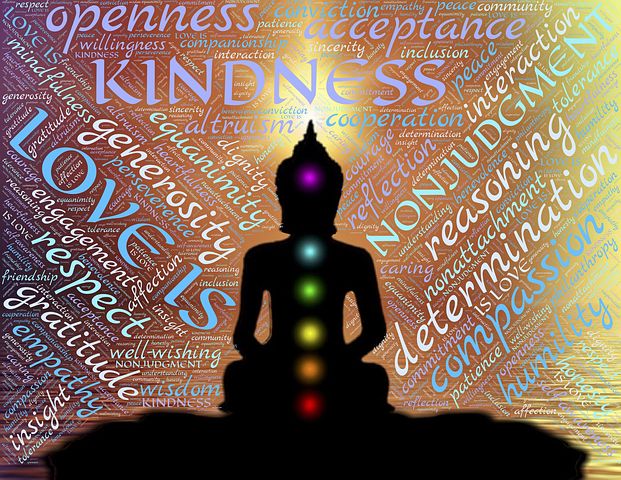The financial markets are volatile and the economic crisis we’re facing is unprecedented. It seems like every day we get conflicting news about the pandemic. First we’d get symptoms in five days, then fourteen. It can be transmitted if you’re asymptomatic, then it can’t. Countries re-open, then have to shut down again as cases spike. Masks help, or they don’t, depending on who you listen to. Conspiracy theories are everywhere… or are they? It’s frustrating to know what information to trust, when everyone has an opinion about something that nobody really knows enough about.
We are living with a collective trauma and its accompanying grief.
That’s something that hasn’t been spoken enough about. People think about grief as the feelings we have when someone near us dies. But it’s much more than that. We are (or soon will be) collectively grieving the death of old ways of working and doing business. Some are grieving the death of loved ones from COVID-19. We’re grieving the loss of physical contact if we live alone and are sheltering in place. Some are grieving the loss of privacy and personal space as they work from home. Not everyone’s home office is ideal. Many are grieving the loss of productivity as they try to shelter in place, work, homeschool kids, and maintain their mental and physical health. And still others are grieving the loss of their jobs.
In a nutshell, our limbic systems have been hijacked. The limbic system is the part of the brain responsible for the fight/flight response to trauma. We have one of four reactions to danger: fight, flight, freeze, or fawn. These are trauma responses that have profound impact on the body when they’re activated over extended periods of time. And our limbic systems have been activated for 8-12 weeks at this point, depending on where you live.These trauma responses decrease our resiliency and our ability to access higher brain functions: not exactly ideal for long term resiliency.
In times like these, it’s necessary to redefine how we view success.
If we don’t, we’ll lose the resiliency we have left. Leaders whose companies are thriving have reported something rather surprising. What has brought teams together, built resilience, and helped them pull together to accomplish great things? Getting real with each other. Dropping the mask of perfectionism. It’s been less about being efficient, and more about being effective. They’re figuring out how to be more effective given varying experiences of working from home. It’s about being human. We can finally bring our whole selves to work. In fact, we have no other choice.
We keep hearing anecdotal stories from clients and colleagues of leaders getting on Zoom calls with their teams. They share a story about how they’re really doing. “My mother broke her hip and I had to drop everything to help her. That’s why I’ve been mostly unavailable, and I’m sorry. She’s home now recovering from surgery.” Then they ask how everyone’s really doing. In one instance, the call lasted over two hours. The leader couldn’t believe how bonded he felt to the team, and the team to each other, after that. There are stories of people cutting out of a Zoom meeting to set up their kid’s next homeschooling module. Entire teams have “met” each others’ pets and kids over the past two months.
Success during these unprecedented times is not just about getting results. It’s about honoring our shared humanity. Most of all, it’s about building resilience.
Johanna Lyman, NextGen Orgs
Here are some suggestions we have for building resilience during these challenging times:
- One of the best ways to build resilience is to uncover your Purpose. People who know their higher purpose and live each day from the values aligned with their purpose are naturally more resilient. It can be tempting to make excuses for not living your values. But we know that purpose and values act as a true North. They guide us to do the right thing always. You won’t have any regrets if you let them guide you. You won’t have to clean up any messes later, either.
- Spend time developing your emotional intelligence. According to research, 90% of the difference between high performers and peers with similar skills can be attributed to their emotional intelligence. Develop self-awareness by meditating, journaling, and being self reflective. Get curious about your emotions. Uncover exactly what emotion(s) you’re feeling and why.
- Move your body every day. Trauma and the accompanying grief can get stuck in our cells. When you move your body, especially if you work up a sweat, you help move the grief and trauma out of your body. Staying physically fit also helps with mental fitness. Studies show that successful leaders are committed to a regular fitness routine.
- Practice mindfulness. You can try a seated meditation, simply paying attention to your breath and letting go of thoughts as they arise. You can try a moving meditation like yoga, tai chi, or qi gong. Or you could simply hold your attention on whatever it is you’re doing in each moment: cooking dinner, playing with your kids, or taking a shower. There are plenty of apps you can use to help you start a meditation practice. As long as you don’t expect to have a perfectly empty mind, you’ll be fine. A Buddhist saying goes like this: “You should meditate every day for twenty minutes, unless you’re very busy. Then you should meditate for an hour.”
We’re not getting back to “normal” any time soon. That’s a good thing. “Normal” was neither healthy nor sustainable. It’s time to bring humanity back into business, for the good of all.


